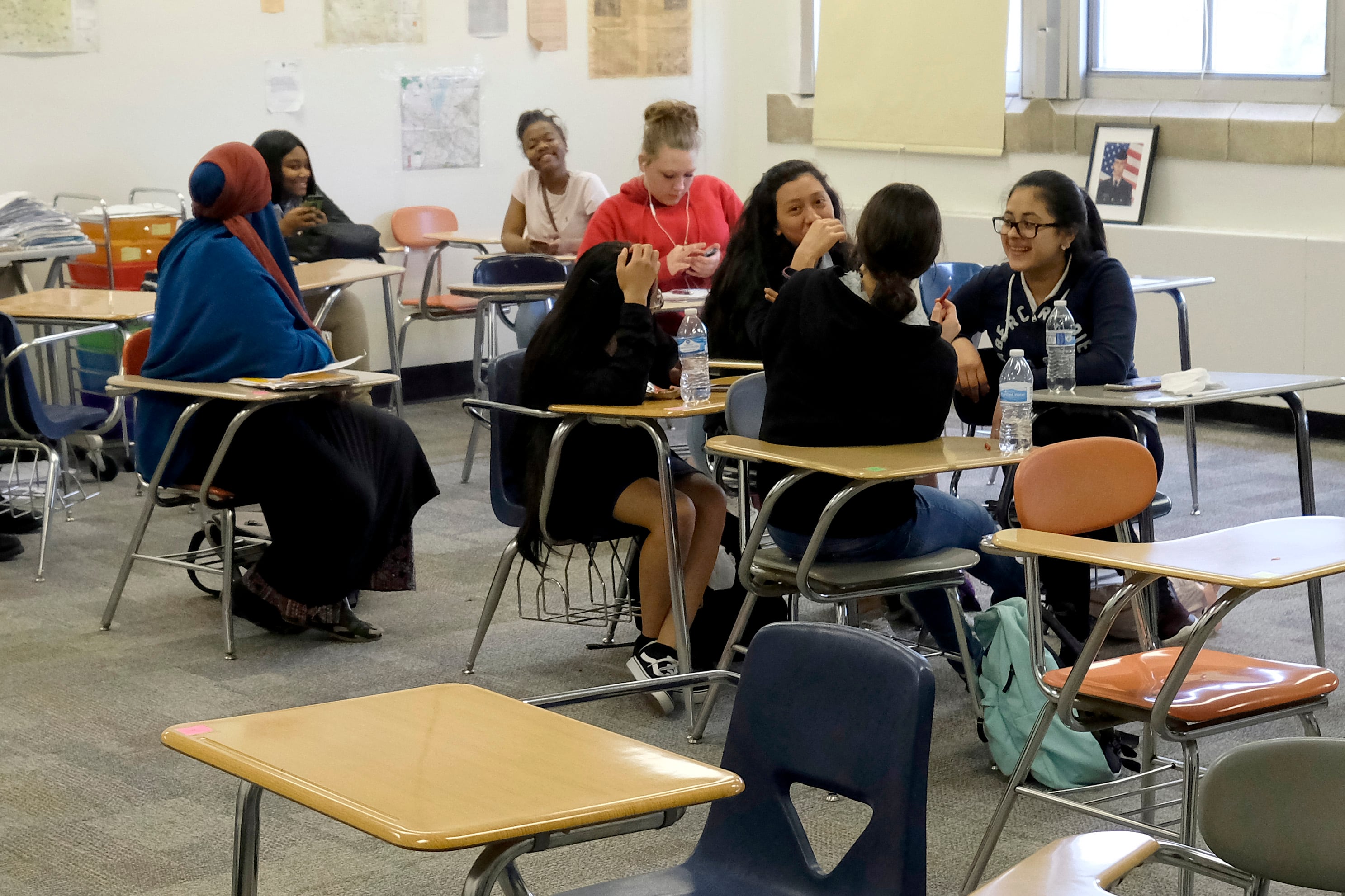Sign up for Chalkbeat Indiana’s free daily newsletter to keep up with Indianapolis Public Schools, Marion County’s township districts, and statewide education news.
Marion County K-12 schools will receive up to $600 million from Lilly Endowment Inc. by the end of 2025 to improve students’ academic achievement and help them succeed after graduation.
The endowment will award grants in three phases, with the third being competitive. Public schools in Marion County will be eligible to apply for the majority of the funding, $450 million, while private schools will be eligible for the remaining $150 million. More than 300 schools — public, charter, and private — have the opportunity to apply, according to a release from the endowment Thursday.
The guidelines for the grants are broad, so schools can tailor initiatives to their students. When considering postsecondary success projects, the endowment is especially interested in initiatives that enable students to earn college degrees or industry-recognized credentials and develop skills they need in their future careers, according to Judith Cebula, communications director at Lilly Endowment.
The Lilly Endowment has unveiled the grants as Indiana policymakers prepare to change high school graduation requirements and put more of an emphasis on preparing students for the workforce. Too many students in the county “are not achieving adequate educational success,” said Ted Maple, the endowment’s vice president for education.
The endowment wanted to address the barriers to educational success, Cebula said in an email to Chalkbeat, including the effects of the pandemic and mental health challenges. Since school leaders have a unique understanding of those problems, the endowment is encouraging proposals that would be “most effective in their own contexts,” she said. (Chalkbeat receives funding from the Lilly Endowment Inc.)
The endowment has allocated funding to educational and postsecondary success programs in Indiana before. In 2022, Lilly put $85 million toward phonics-focused literacy instruction and $28.8 million to youth camps on Indiana’s college campuses.
The $600 million grant program is roughly a third larger than the $456 million budget adopted by Indianapolis Public Schools for this year.
Some projects may focus on near-term improvements to student success, the release said, such as instructional programs. But the endowment is also open to projects addressing underlying challenges to learning like food insecurity and chronic absenteeism.
“We are encouraging school leaders to take full advantage of the opportunities under these initiatives to identify and implement promising, local, national or global, evidenced-based approaches to address the relevant educational challenges and opportunities of their students,” Ted Maple, the endowment’s vice president for education, said in the release.
The grants will be divided into three phases: planning, implementation, and competitive grants. Phase 1 will support applicants as they prepare proposals, and Phase 2 will help with the implementation of promising projects. In Phase 3, schools will compete for the largest grants.
Recipients will have five years to use the funding.
Schools can learn more about the grants here.
This story has been updated to clarify which phase of the grants is a competitive process.
Haley Miller is a summer reporting intern covering education in the Indianapolis area. Contact Haley at hmiller@chalkbeat.org







